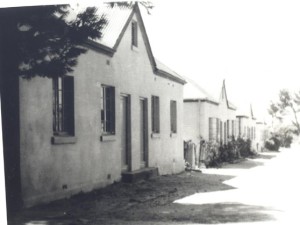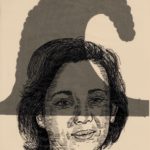Barbara Maregele – Redhill’s Ruins: Cape Town’s Forgotten District Six
No comments yet
Municipal cottages in the area now known as Pinehaven, where the Lawrence family had lived before they were forced to move from the area. Photo courtesy of the Simon’s Town Museum.
groundup.org.za, July 2014. There’s silence as Margaret Constant and her brother George Lawrence walk through lush Fynbos to the stone ruins of Redhill Village, the place they once called home.
Nestled in the mountains overlooking Simon’s Town, Redhill was once home to more than 70 predominantly coloured families, before they were forcibly removed from the area in the late 1960s.
“I was about nine-years-old. My parents got a letter and we were told that we couldn’t stay here anymore. I couldn’t understand why. To us, this was our home. I was heartbroken,” says Constant.
They were among thousands of families forced to leave their homes and relocated to barren land on the Cape Flats under the Group Areas Act.
Families were issued with a notice and given about a week to vacate their homes.
At the time, Redhill residents were told they were being moved to make way for the construction of a new dam. But this never happened.
The first people to leave Redhill were relocated to Heathfield and Retreat, while the rest were all moved to Ocean View, then known as Slangkop.
They were joined by people who were relocated from the surrounding Noordhoek areas.
Nearly 44 years later, Constant, 53, and Lawrence, 57, took GroundUp through the ruins in Redhill.
Read more: http://www.groundup.org.za/redhills-ruins-cape-towns-forgotten-district-six
You May Also Like
Comments
Leave a Reply






